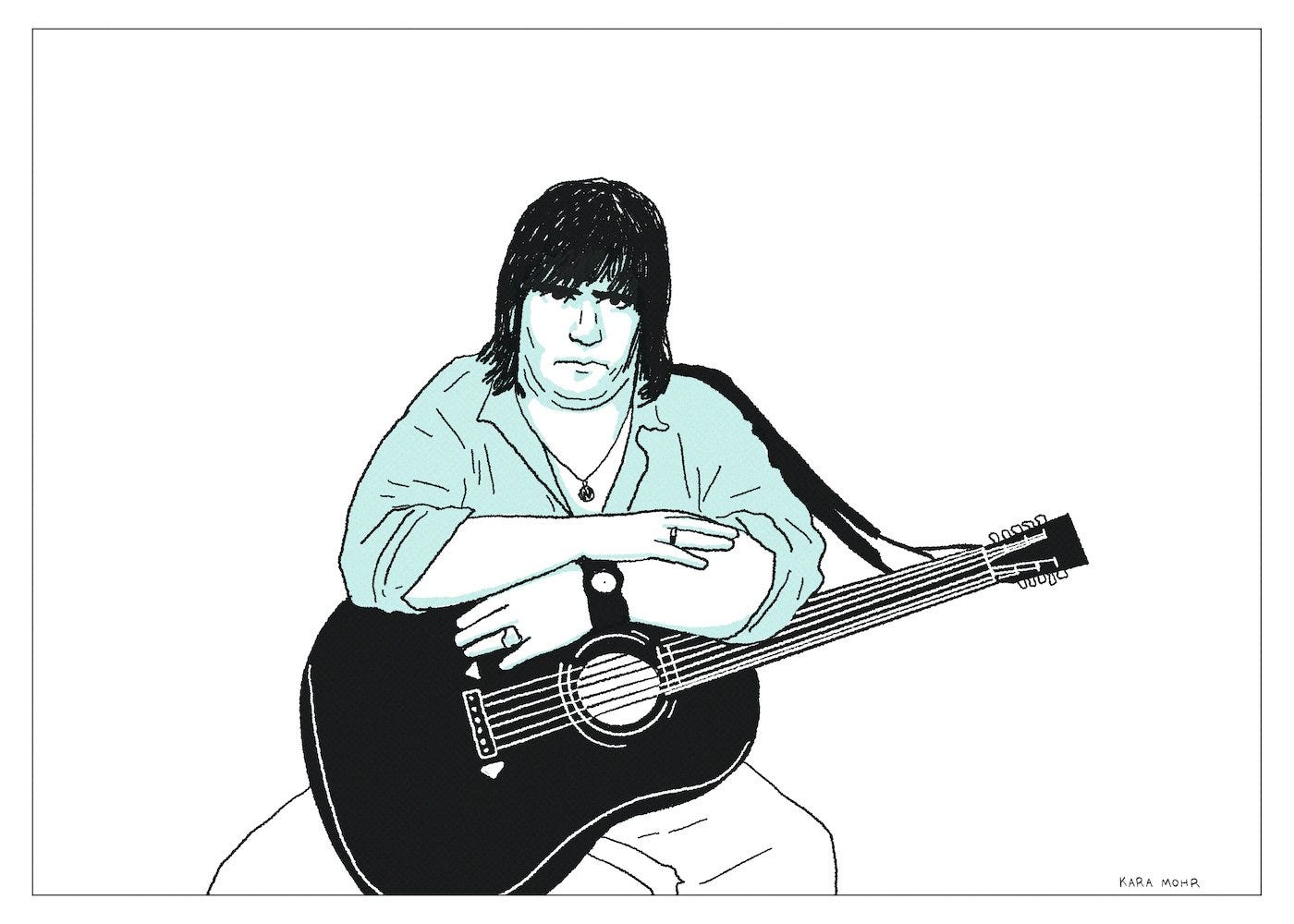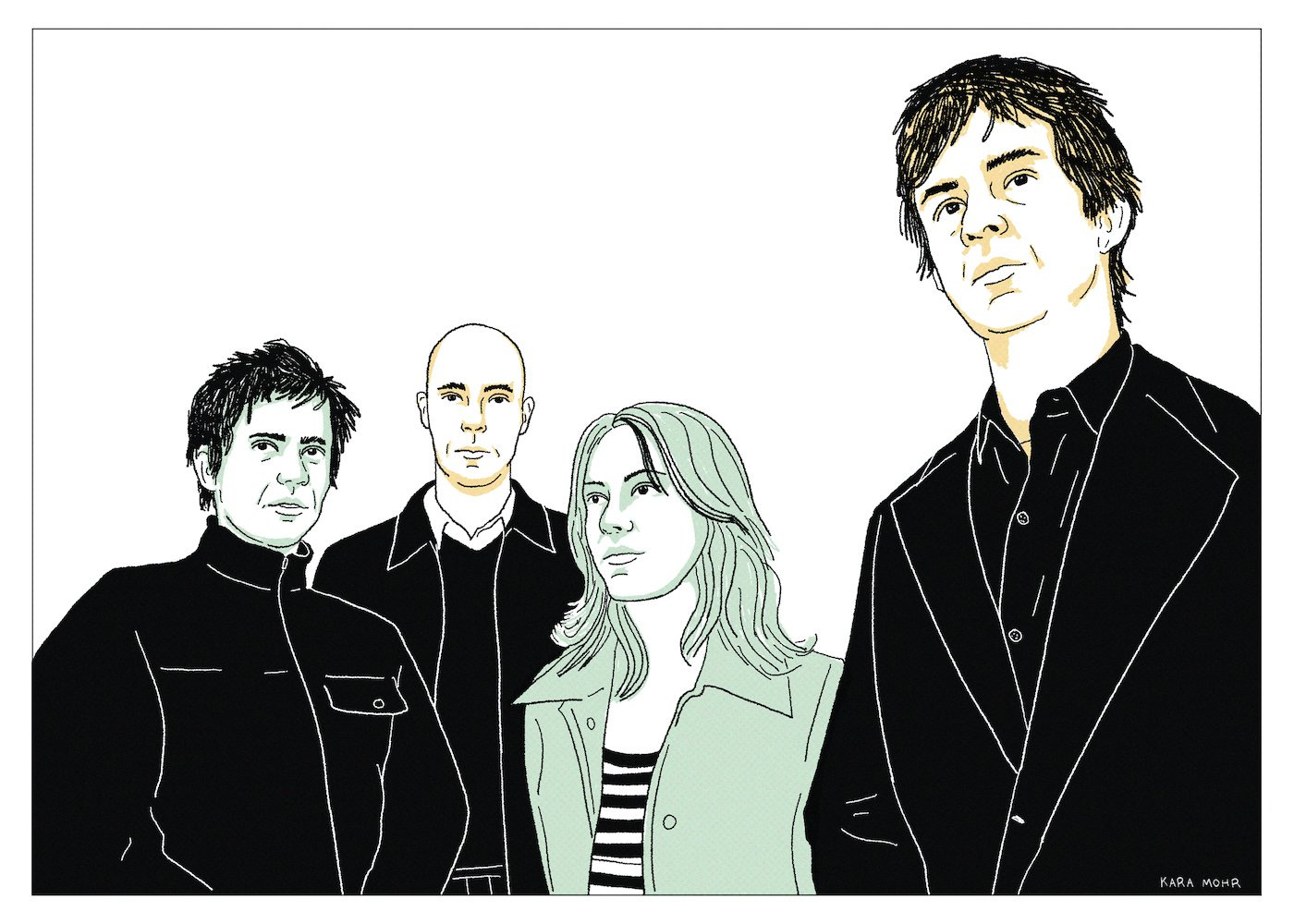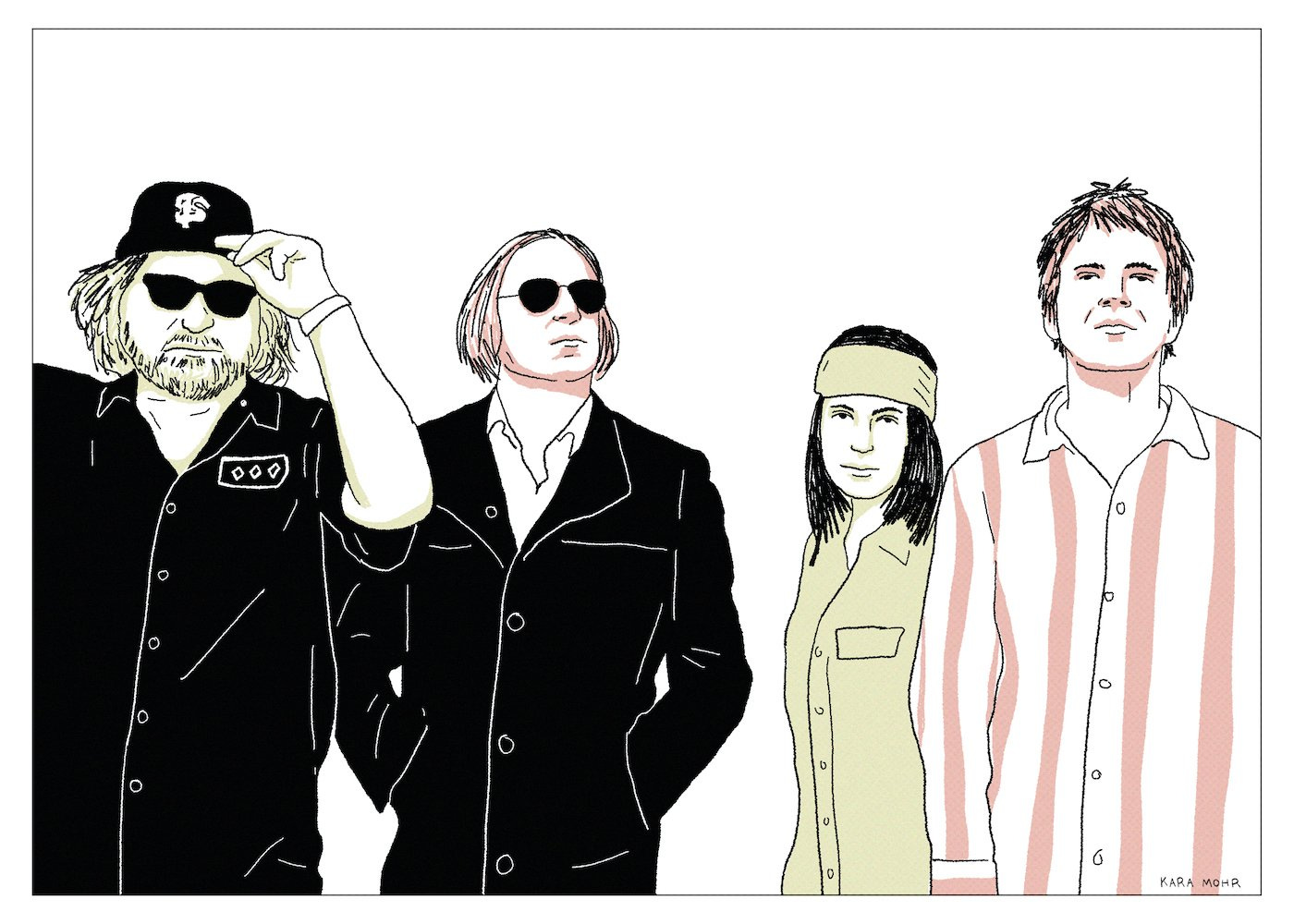Past Prime: June '24
Pink Floyd, Steve Earle, George Foster & The Other Willies (McCovey & Stargell)
Can you feel it? That’s the Vermonty balm outside Past Prime’s summer headquarters. Our migration to the Green Mountain State legally requires that we (re)consider Phish. Spiritually, however, the fresh cut grass & the languid sunsets recall “That Summer Feeling,” by Chico, California’s foremost pizza oven stonemason, Mr. Jonathan Richman.
Because the past six weeks were filled with Little League baseball (assistant) coaching, we leaned into two past prime pastime assignments. One about the only guy to hit fifty home runs between 1961 & 1990 & one about The Other Willies (McCovey & Stargell). Additionally, we reviewed the Janglecore meets Bill James debut by The Baseball Project. In non-baseball news, we spent a fuzzy wuzzy week with Luna & a clean and (kinda) sober seven days with Steve Earle. And then came the real work. After an embarrassing amount hand wringing, we are pleased to finally present Pink Floyd’s “The Division Bell” (spoiler: it’s pretty good—especially if you, like me, enjoyed the “Lethal Weapon 2” soundtrack).
Pink Floyd “The Division Bell”
For as much as it was a David Gilmour album, “A Momentary Loss of Reason” was also a Roger Waters album. Every single review noted the absence of the band’s erstwhile leader, who was himself active & vocal in his derision for the project. And while the record was commercially successful, it was doubly taxing. In its aftermath, Gilmore & Waters finally resolved most of their legal affairs but almost none of their enmity. For many years there was little hope, and no indication, of any future for Pink Floyd. But then, in 1993, the ink having barely dried on both his marital & professional divorces, Gilmour did something unexpected. He invited Nick Mason & Richard Wright to get together, play some music & talk about the power of talking.
In 1996, having shaken off five years of rust, sixty days in jail & a couple decades of addiction, Steve Earle released “I Feel Alright.” Whereas 1995s “Train a Comin’” found him looking backwards, “I Feel Alright” was a completely present album. It was vintage Earle, after the pink cloud of new sobriety had dissipated—honest, aching & feeling “alright.” Which is to say he was not feeling great. But also he was not feeling awful. It was a hedge—somewhere between cautious & optimistic. “I Feel Alright” is the ultimate one day at a time response to the question, “How you doing?” As a description of Earle’s state of mind, it sounded appropriate. As a title for his sixth studio album, it felt like radical understatement.
Just a decade earlier with Galaxie 500, Dean Wareham realized something profoundly obvious—that it’s hard to be in a band when two members are also a couple. Back then he was the frontman who was also a third wheel. But in 2004 with Luna he was the frontman & one half of a couple. Which is why “Rendezvous,” Luna’s seventh studio album, was meant to be their last album. Recorded during their farewell tour, “Tell Me Do You Miss Me” is a feature length documentary about life on the road for a well known & well loved, but ultimately not known or loved enough indie band. On the surface, it’s the story of a band breaking up because they just can’t make a living. But you didn’t have to scratch too hard to uncover a deeper truth—the story of a band breaking up because their lead singer & bassist had fallen in love.
The Baseball Project “Volume 1: Frozen Ropes and Dying Quails”
While they aren’t technically Hall of Famers, Steve Wynn & Scott McCaughey are the subjects of great indie fascination & the stars of The Baseball Project. On “Frozen Ropes and Dying Quails,” Wynn has seven writing credits to McCaughey’s six. Meanwhile, the actual Hall of Famer—Peter Buck —operates as a role player & drummer Linda Pitmon calls pitches from behind the plate. In The Baseball Project, the frontmen are actually journeymen. Which, I think, is a big reason why the band succeeds—because they are a team. Everyone is working in service of the same, very specific goal—to make always witty, occasionally poignant songs about baseball’s great history. They’re not aiming for hits, much less home runs—they just want to play ball.
Willie McCovey and Willie Stargell “The Other Willies”
Beyond their shared first name & their doppelgänger stats, McCovey & Stargell co-represent an enduring Major League Baseball archetype: post-Jackie-&-Larry, post-Hank-&-Willie MLB stars. Stretch & Pops were MVP-caliber sluggers young enough to appreciate the monumental importance of their predecessors & old enough to recall the ugliness of baseball’s recent past. The two Willies respectfully thrived so that Curt Flood could brazenly protest. They demurred so their superstar teammates—Mays & Clemente—could shine. If Willie Mays was always the untouchable standard, these two Willies—together—represented the enduring greatness of goodness.
Although some “Hall of Very Good” players have enjoyed extended, Cooperstown-worthy runs—Wally Berger, Hal Trosky & Mo Vaughn come to mind—the actual number is smaller than you’d think. George Foster might belong in that class except that—unlike the others, whose careers were cut short by injury, military service or poor self care—he avoided injuries, fought no wars & took immaculate care of himself. Moreover, his peak was matched only by the mediocrity of what came before and after. Many people have suggested that George Foster was a great “what if” story—what if he’d been given a chance to start earlier in his career with The Giants? What if The Mets had protection for Foster in their early Eighties lineups. Alternately, Foster might also be one of the game’s great “what if not” stories—what would his career have looked like had he not played for The Big Red Machine?










